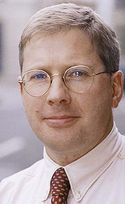The future could still be gold
24 May 2008“Fantastic!”, whispered someone sitting behind me at TRADA’s In Touch with Timber Conference this week.
The event this year focused on timber’s opportunities at the London Olympics and all of it was interesting. But the superlative I overheard was directed at the presentation by architect David Morley on his practice’s design for the 2012 Games’ velodrome.
The dramatically curvacious building was the last word in timber construction. The walls were based on glulam beams which arched over to support a skylight mirroring the track below. The central roof section was a timber gridshell and wood panel products also figured strongly.
Some of the audience already knew the sting in Mr Morley’s tale, that his design lost out to one from Hopkins Architects which, while using timber, is expected to be steel framed. But judging by the gasp of disappointment behind me, not everyone did.
Mr Morley said that he thought part of reason his practice’s pitch was rejected was because timber construction is still seen as a “risk” in the UK. The view was shared by Craig White, chairman of the conference and the Wood for Gold Olympic timber lobbying initiative. He contrasted the UK outlook with views just “60 miles from the Olympics site”. “Cross the channel and timber would be the default option for many of the Games’ major buildings,”?he said.
Bearing out Mr Morley’s view, it has also been announced that the Olympics aquatic centre will be steel frame.
The good news, the conference audience heard, is that only half the tier one contracts for the Games have been awarded and that timber still has an opportunity to make a big impact on the main east London site and associated developments around the UK. Wood for Gold is also taking its campaign forward, planning to use lessons learned around the Olympics to lobby for the use of wood at the 2014 Commonwealth Games in Glasgow.
But to make the most of the opportunities, stressed Craig White, the timber sector still needs to up the promotion and education ante; it needs to “make its views felt at the Olympic Delivery Authority, speak with one voice and channel it effectively”. If it does that, 2012 and beyond could yet be fantastic.
